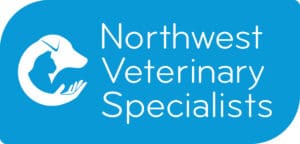Information for Travelled Dogs
In the last few years, the number of dogs diagnosed with Brucella canis infection in the UK is increasing. Of those diagnosed, there is a higher proportion of cases in dogs that have come from or travelled to endemic countries outside of the UK.
Clinical signs seen in dogs are:
- Reproductive issues - abortion, epididymitis, orchitis, prostatitis
- Discospondylitis
- Rarely polyarthritis, uveitis, lethargy, pyrexia
- Asymptomatic
Zoonotic (spread to humans):
- Signs in humans are non-specific and flu-like
- Transmission is via exposure to bodily fluids, especially reproductive, but the overall risk is low
Due to the incidence of Brucella canis infection in asymptomatic patients and the number of higher-risk procedures performed, such as cystocentesis, CSF, joint fluid sampling, and spinal and joint surgeries, we are routinely testing our travelled patients that are referred to us.
We will perform rapid, patient-side serology tests in all travelled dogs prior to being admitted to the hospital. Based on these results, our clinical suspicion, and the stability of the patient, we will either:
- Continue management as normal
- Discharge the patient while pending further results
- Hospitalise the patient to provide supportive care while pending further results.
These changes are being made to reduce the risks to other pets, owners and staff.
Referring Vets Only - How could you help us?
- If a patient has travelled to/from an endemic country, you may consider performing a lateral flow test initially
- If a lateral flow test is positive, or you have any clinical suspicion of Brucella canis,then submit serology to the APHA prior to referral:
- Slide agglutination test (SAT) TC1032 and indirect ELISA (iELISA) TC0116
- These results take 7-21 days
- Give us a call/email us if you have any further questions
- Educate owners about brucellosis, including the increased vigilance with an aim to reduce the risk to other pet owners and staff.
Brucella infections are notifiable to the APHA (Animal and Plant Health Agency).
Call Northwest Veterinary Specialists on 01928 711 400 or get in touch at https://www.nwspecialists.com/contact/.
